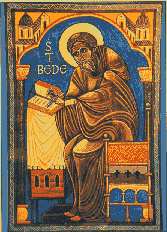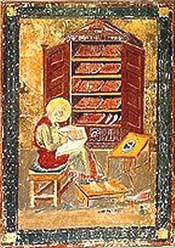
Come see these beauties and have a blast tomorrow at the Starlight Indiana strawberry festival, hosted by St. John the Baptist RCC.

And also internationally. We have for years in the Anglican Communion operated a tacit rule of agreeing to differ about many things but trying not to do or say things which will cause other Anglicans to stumble. The Lambeth Conference has been the main instrument of this process: broad agreement can be reached on major issues while the provinces retain autonomy in their own lives. Thus, for instance, the Lambeth Conference agreed that it was all right to admit children to Communion prior to Confirmation, which then opened up the question for any individual Province to discuss, as most now have. Our own General Synod repeated Lambeth’s point, so the issue was then passed down to dioceses. Our own Diocese in turn agreed, so the issue has now become a matter for individual parishes. That is a model of how you discern that something is adiaphora, and how you deal with the issue once that has been decided, respecting consciences all the way through. It highlights again this key point: the question of whether a particular issue is adiaphora or not cannot itself be adiaphora. It wouldn’t have done for the Parish of St-Muddy-by-the-Sea to decide independently that the question of unconfirmed children receiving Communion was adiaphora and then proceeding to take its own decision without reference to its diocese, its province, or the whole Communion.
The principle of adiaphora was itself, in fact, a matter of life and death. The doctrine that some things are adipahora, and some aren’t, is not itself adiaphora. The decision as to which things make a difference and which do not is itself a decision which makes a huge difference. Some of the early English Reformers claimed explicitly that they were dying precisely for the principle of adiaphora itself, for the right to disagree on certain points (not on everything). That for which you will give your life is hardly something which doesn’t make a difference.
 While it's no Colloquy of Marburg, an exciting turn of events is happening within the LCMS. In the context of exploring "altar and pulpit" fellowship with other confessional Lutheran bodies, the synod also explored similar overtures toward the Anglican Church in North America. I imagine that this will take some time, and be very carefully pursued given that some in ACNA ordain women (LCMS does not) and some in ACNA have a bare receptionist position on the Lord's Table (most don't) and then the Anglo-Catholics could make a big deal about the episcopate. So plenty to resolve...but I'm happy to see the stirrings toward evangelical unity. My sincere desire is that instead of seeking union with Rome, our communion moves steadily toward those who embraced reformed (i.e. Biblical) catholicism, then extend outward toward the children of the Reformation within the Latin Rite.
While it's no Colloquy of Marburg, an exciting turn of events is happening within the LCMS. In the context of exploring "altar and pulpit" fellowship with other confessional Lutheran bodies, the synod also explored similar overtures toward the Anglican Church in North America. I imagine that this will take some time, and be very carefully pursued given that some in ACNA ordain women (LCMS does not) and some in ACNA have a bare receptionist position on the Lord's Table (most don't) and then the Anglo-Catholics could make a big deal about the episcopate. So plenty to resolve...but I'm happy to see the stirrings toward evangelical unity. My sincere desire is that instead of seeking union with Rome, our communion moves steadily toward those who embraced reformed (i.e. Biblical) catholicism, then extend outward toward the children of the Reformation within the Latin Rite.
 Bede was a monk at the English monastery of Wearmouth and Jarrow, in Northumbria. From the age of seven, he spent all his life at that monastery except for a few brief visits to nearby sites. He says of himself: "I have devoted my energies to a study of the Scriptures, observing monastic discipline, and singing the daily services in church; study, teaching, and writing have always been my delight."
Bede was a monk at the English monastery of Wearmouth and Jarrow, in Northumbria. From the age of seven, he spent all his life at that monastery except for a few brief visits to nearby sites. He says of himself: "I have devoted my energies to a study of the Scriptures, observing monastic discipline, and singing the daily services in church; study, teaching, and writing have always been my delight." He was the first person to write scholarly works in the English language, although unfortunately only fragments of his English writings have survived. He translated the Gospel of John into Old English, completing the work on the very day of his death. He also wrote extensively in Latin. He wrote commentaries on the Pentateuch and other portions of Holy Scripture. His best-known work is his History of the English Church and People, a classic which has frequently been translated and is available in Penguin Paperbacks. It gives a history of Britain up to 729, speaking of the Celtic peoples who were converted to Christianity during the first three centuries of the Christian era, and the invasion of the Anglo-Saxon pagans in the fifth and sixth centuries, and their subsequent conversion by Celtic missionaries from the north and west, and Roman missionaries from the south and east. His work is our chief source for the history of the British Isles during this period. Fortunately, Bede was careful to sort fact from hearsay, and to tell us the sources of his information.
 He also wrote hymns and other verse, the first martyrology with historical notes, letters and homilies, works on grammar, on chronology and astronomy -- he was aware that the earth is a sphere, and he is the first historian to date events ANNO DOMINI, and the earliest known writer to state that the solar year is not exactly 365 and a quarter days long, so that the Julian calendar (one leap year every four years) requires some adjusting if the months are not to get out of step with the seasons.
He also wrote hymns and other verse, the first martyrology with historical notes, letters and homilies, works on grammar, on chronology and astronomy -- he was aware that the earth is a sphere, and he is the first historian to date events ANNO DOMINI, and the earliest known writer to state that the solar year is not exactly 365 and a quarter days long, so that the Julian calendar (one leap year every four years) requires some adjusting if the months are not to get out of step with the seasons.
His hymns include one for the Ascension. Suggested tune is Agincourt, also called Deo Gratias (or Gracias), which follows:
| Clyde McLennan - Creator of the earth and skies .mp3 | ||
 | ||
 | Found at bee mp3 search engine |  |
A hymn of glory let us sing;
New songs throughout the world shall ring:
Christ, by a road before untrod,
Now rises to the throne of God.
The holy apostolic band
Upon the Mount of Olives stand;
And with his followers they see
Their Lord's ascending majesty.
To them the angels drawing nigh,
"Why stand and gaze upon the sky?
This is the Savior," thus they say;
"This is his glorious triumph day.
"Again shall ye behold him so
As ye today have seen him go,
In glorious pomp ascending high,
Up to the portals of the sky."
O risen Christ, ascended Lord,
All praise to thee let earth accord,
Who art, while endless ages run,
With Father and with Spirit one.
Preface of a Saint (1)
PRAYER (contemporary wording)
